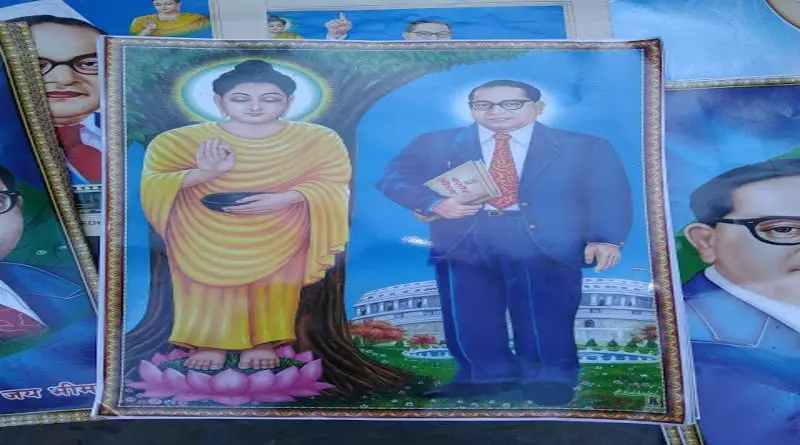The Buddhist dimension of Ambedkar
I might have born as a Hindu but will not die as the same – these were the words of Bhimrao Ramji Ambedkar as he decided to get converted and embrace Buddhism. Ambedkar is an eminent scholar, a person of wisdom and has earned many degrees in vivid concepts and theories. We may wonder that what would have influenced him to leave Hinduism, his religion by birth, to the Buddhism. What is more special about Buddhism? December 6th is his death anniversary and let us revisit the important moment of his life, in his remembrance.
Philosophical values of Buddhism:
The king turned into a monk, Gautama Buddha is the founder of Buddhism where Buddha is not his name but his state meaning “the enlightened”. The life-changing incident of Buddha where he spotted a sick man, an old man, a dead man, a holy man and found the monk who set himself free from the worldly commitments to be the happiest. He attained wisdom about the real salvation and started preaching it as the dhamma.
The core of his teachings was – Life is full of sufferings, desire is the cause of suffering, the suffering has to be mitigated and for that, a person should renounce himself from worldly affairs. It talks about the liberation of oneself from the self and from the world for salvation. Buddha also founded Sangha – the assembly for the Buddhist monks which showed no discrimination and admitted both men and women from different castes and classes. Thus preached equality and mutual respect for fellow men as the main rule of Sangha.
What attracted Ambedkar towards Buddhism:
Scholars tried to interpret the interest of Ambedkar towards Buddhism and majority of them came to a conclusion that Ambedkar was a democrat by conviction and the democracy stands over the basic principles of liberty and equality. So, Ambedkar after conducting wide and deep researches on world religions found a relevance with Buddhism to satisfy his search. He rejected Christianity and Islam which were centering around the god but in Buddhism, there is no god-worship instead self is worshipped.
Even though the above-said explanation stands valid, it is not the only explanation. The triggering point was the social discrimination faced by Ambedkar right from his school life because of his birth in Mahar community which was labeled as a lower caste. Ambedkar is a wise scholar, attained important positions in his career but still was ill-treated because of the caste discrimination. Frustrated Ambedkar believed that the varna system of Hinduism is the mother of all social evils, so was in dire need of an alternative religion where he can experience liberty of thoughts and equality of justice, and that was Navayana Buddhism, the raw form of Buddha’s preachings.
Ambedkar practiced what he believed:
The historic incident happened on 14th October 1956 when Ambedkar along with lakhs of people officially converted to Buddhism. Ambedkar articulated that religion is essential for the upliftment of a person and was against the atheist ideology of communism. The impact of his preachings was felt when the percentage of people converted to Buddhism got increased in the following years.
Ambedkar spent his entire life in overcoming the discrimination he faced and also worked hard to secure the rights of the depressed classes. The famous Mahad march to get water from the public tank for the lower caste people and temple entry movement of Dalits into Kalaram temple showed his rigid disapproval against the inequality practiced in Hinduism. He took the famous twenty-two vows and incorporated himself into Buddhism and proved his saying which is quoted at the beginning of this article.




